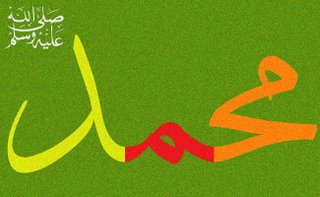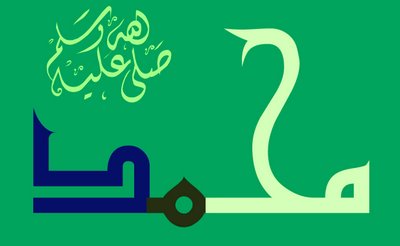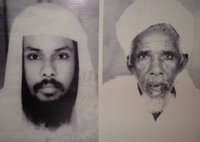
The Pride of Humanity was a man of love and affection. One of his names was Habib Allah (the Beloved of God). In addition to meaning one who loves, habib also means one who is loved, one who loves God and is loved by God. Sufi masters like Imam Rabbani, Mawlana Khalid, and Shah Waliy Allah al-Dahlawi state that love is the ultimate station of the spiritual journey.
God created the universe as a manifestation of His love for His creatures, especially humanity, and Islam became the fabric woven out of this love. In the words of Bediuzzaman, love is the essence of creation. Just as a mother's love and compassion allows a surgeon to operate on her sick to save his or her life, jihad does not rule out war, if needed, to preserve such fundamental human rights as the right to life and religious freedom. Jihad does not exclusively mean war, although some claim that that is its only meaning.
Once a friend said to me: "Without exception and regardless of faith, you meet with everyone, and this breaks the tension of Muslims. But it is an Islamic principle to love what or who must be loved in the way of God and dislike what or who must be disliked in the way of God also." Actually this principle is often misunderstood, for in Islam all of creation is to be loved according to the rule of loving in God's way. "Disliking in the way of God" does not apply to human beings but to feelings, thoughts, and attributes. Thus, we should dislike such things as immorality, unbelief and polytheism, not those who engage in them. God created humanity as noble, and everyone shares to a certain degree in this nobility. God's Messenger once stood up out of respect for man as the funeral procession of a Jew passed by. When reminded that the deceased was a Jew, the Prophet replied: "But he's a human being," thereby the value Islam gives to human beings.
This shows how highly our Prophet respected each person. Given this, the involvement of some self-proclaimed Muslim individuals or institutions in terrorist activities do not lie in Islam. The reasons should be sought in themselves, their false interpretations, and other factors and motives. Islam does not support terror, so how could a Muslim who truly understands his or her religion be a terrorist?
Within this framework, if we exclude certain periods and individuals, the Turks' interpretation of Islam, with respect to the issues open to interpretation, is correct and positive. If we can spread globally the Islamic understanding of such heroes of love as Niyazi Misri, Yunus Emre, and Mawlana Rumi, and if we can extend their messages of love, dialogue, and tolerance to people who are thirsty for this message, everyone will will run toward the embrace of love, peace, and tolerance that we represent.
Islam's definition of tolerance is such that the Prophet prohibited verbal abuse. For example, Abu Jahl died before embracing Islam despite all of the Prophet's efforts. His unbelief and enmity toward the Prophet was such that he deserved the title "Abu Jahl": "the father of the ignorant and impudent." His untiring opposition to Islam was a thorn on the side of Muslims. Despite such hostility, however, the Prophet always warned his Companions against making disparaging remarks about Abu Jahl. Once, in an assembly of Companions where Abu Jahl's son Ikrima was present, the Prophet admonished a Companion who was heard insulting Abu Jahl: "Do not hurt others by criticizing their fathers." Another time, he said: "Cursing your mother and father is a great sin." The Companions asked: "O Messenger of God, would anyone curse their parents?" The Prince of Prophets replied: "When someone curses another's father and the other curses his father in return, or when someone curses another's mother and the other does the same in return, they will have cursed their parents." [Muslim, Sahih, "Iman," 145; Tirmidhi, Sunan, "Birr,", 4]
While the Prophet of Mercy, upon him be peace and blessings, was inordinately sensitive when it came to respecting others, some Muslims today justify their abrasive behavior on the basis of religion. This shows that they do not understand Islam, which has no place for malice and hatred.
The Qur'an strongly urges forgiveness and tolerance. In one verse, it says of pious people: They swallow their anger and forgive people. God loves those who do good (3:134). In other words, Muslims do not retaliate when verbally abused or attacked. If possible, as Yunus says, they act as if they had no hand and tongue to respond or heart to resent. They swallow their anger and close their eyes to others' faults. The words selected in the verse are very meaningful. Kezm, translated as swallowing, means swallowing something like a thorn that is not swallowable; kzm means someone who has swallowed his wrath. Again verse, while mentioning the characteristics of believers, says: and if they pass by futility, they pass by it with honorable avoidance (25:72).
When we look at the exalted life of God's Messenger, we see that he always practiced the precepts presented in the Qur'an. For example, a Companion once repented of a sin and admitted: "I am guilty of fornication. Whatever my punishment is, give it and cleanse me." The Prince of the Prophets said: "Go back and repent, for God forgives all sins." Another time, a Companion complained to God's Messenger about someone who had stolen his belongings. But at the moment the punishment was going to be given, the Companion said: "I have changed my mind and do not want to pursue my case. I forgive this individual." Muhammad asked: "Why did you bring this matter to court? Why didn't you forgive him from the outset?"
When such examples are studied from their original sources, it is clear that the method used by those who act with enmity and hatred, who view everyone but themselves with wrath, and who blacken others as infidels is un-Islamic, for Islam is a religion of love and tolerance. A Muslim is a person of love and affection who avoids very kind of terroristic activity and who has no malice and hatred for anyone or anything.
M. Fethullah Gülen








